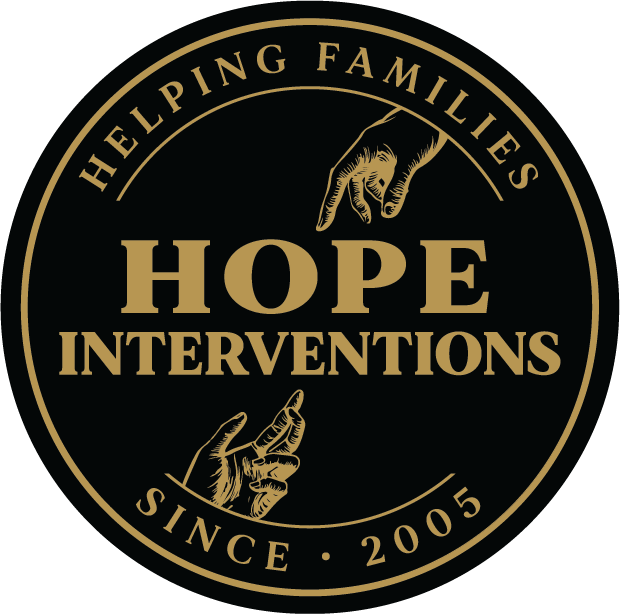A Comprehensive Guide for Substance Abuse Interventions
What is an intervention?
An intervention is a planned and structured process aimed at helping an individual who is struggling with addiction, mental health issues, or other destructive behaviors. It involves a group of concerned individuals, such as family members or friends, coming together to confront the person in a supportive and non-judgmental manner, expressing their concerns and encouraging them to seek help and make changes in their lives. The goal of an intervention is to encourage the person to acknowledge their problem, accept help, and begin the journey to recovery.
How to prepare
Preparing for an intervention involves several key steps. First, gather a team of concerned and supportive individuals who are close to the person struggling with addiction or harmful behavior. Educate yourselves on the nature of the problem and available treatment options. Plan what you are going to say during the intervention, outlining specific instances of how their behavior has affected you and your concerns for their well-being. Finally, choose a suitable time and location for the intervention, ensuring privacy and a calm environment. It is crucial to have a professional interventionist present to guide the process.
How to Stage an Intervention
Performing an intervention requires careful planning and execution. Start by gathering a support team and developing a clear intervention plan. Choose a suitable location and time for the intervention, ensuring privacy and comfort for the person in need. During the intervention, express your concern and love, share specific examples of how their behavior is affecting themselves and others, and present a prearranged treatment plan. Stay supportive, empathetic, and non-judgmental throughout the process, encouraging the individual to seek help and address any concerns they may have. Remember that professional help and guidance are vital for a successful intervention.
Learn about it
Before conducting an intervention, it is crucial to inform yourself about the process and best practices involved. Research and educate yourself about addiction or the specific issue at hand, as well as intervention strategies and techniques. Seek guidance from trained professionals or support groups who can provide insight and expertise. Understanding the dynamics of addiction, the potential reactions of the individual, and the available resources will help you plan and execute a more effective and compassionate intervention. Remember that knowledge and preparation are key to maximizing the chances of a successful outcome and providing the individual with the necessary support they need.
Get family and friends
Family and friends showing support during an intervention is of utmost importance. The presence of loved ones provides a strong message of care, concern, and solidarity, showing the individual that they are not alone in their struggle. It can also create a supportive and non-judgmental environment that encourages the person to open up and consider seeking help. The support from family and friends can serve as a powerful motivator, giving the individual the confidence and reassurance needed to take positive steps towards recovery. Their presence also demonstrates a commitment to being part of the person’s support system throughout their journey to recovery, which can be instrumental in their long-term success.
Make a strategy
Creating a strategy for an intervention is crucial in ensuring its effectiveness and minimizing potential negative outcomes. A well-thought-out plan helps maintain focus, structure, and organization during the intervention. It allows for careful consideration of the individual’s specific needs, potential reactions, and available resources. A strategy provides a roadmap for each participant, ensuring that their messages are clear, supportive, and coordinated. It also helps address any potential challenges or objections that may arise, enabling the intervention to proceed smoothly. A strategic approach increases the likelihood of a successful outcome by enabling the intervention team to present a united front, express concerns in a compassionate manner, and guide the individual toward accepting help and making positive changes in their life.
Keep positive
Maintaining a positive and open mind when supporting a loved one during an intervention is vital. It is important to approach the situation with empathy, understanding, and non-judgment. By keeping a positive mindset, we can create a safe and supportive environment that encourages open communication and shows our loved ones that we believe in their potential for change. An open mind allows us to listen actively, consider their perspective, and respond with compassion. It is crucial to remember that the purpose of the intervention is to aid their recovery, and by remaining positive and open-minded, we can foster a sense of hope and optimism, which are essential for their journey towards healing.
Hire a professional
Seeking professional help to perform an intervention is highly recommended. Professionals, such as interventionists or therapists, possess the skills and expertise necessary to navigate the complexities of addiction or other challenging situations. They can provide objective guidance, ensure the intervention follows a structured process, and help manage potentially volatile emotions. Professional interventionists can also educate and prepare participants, offer additional resources, and facilitate a productive dialogue. Their experience and knowledge allow for a more successful intervention, increasing the chances of the individual accepting help and starting their path to recovery. Furthermore, professionals can provide ongoing support and guidance for both the individual and their loved ones throughout the intervention process, ensuring long-term success and healing.
Treatment options for substance abuse addiction
There are various treatment options available for individuals struggling with substance abuse addictions. One common approach is residential inpatient treatment, where individuals reside at a facility and receive around-the-clock care, including individual and group therapy, medical support, and structured activities. Outpatient programs offer flexibility by allowing participants to live at home while attending therapy sessions and support groups regularly. Medication-assisted treatment combines therapy with medications to help manage cravings and withdrawal symptoms. Support groups like Alcoholics Anonymous or Narcotics Anonymous provide a sense of community and ongoing support. Cognitive-behavioral therapy focuses on identifying and changing harmful thought patterns and behaviors. Ultimately, choosing the appropriate treatment option should be tailored to the individual’s needs and level of addiction severity, and it may involve a combination of therapies to achieve long-term recovery.
We can help & Guide you every step of the way
At Hope Interventions, we specialize in providing substance abuse interventions and are committed to assisting you or your loved one toward a path of recovery. Our experienced interventionists are skilled in navigating the complexities of addiction and can guide you through the entire process with compassion and expertise. We understand that each individual’s situation is unique, which is why we tailor our approach to meet their specific needs. From planning and preparation to conducting the intervention and facilitating treatment placement, we provide comprehensive support every step of the way. With our knowledge, resources, and dedication to seeing individuals and families heal, we strive to make a positive difference in the lives of those struggling with substance abuse addictions.


